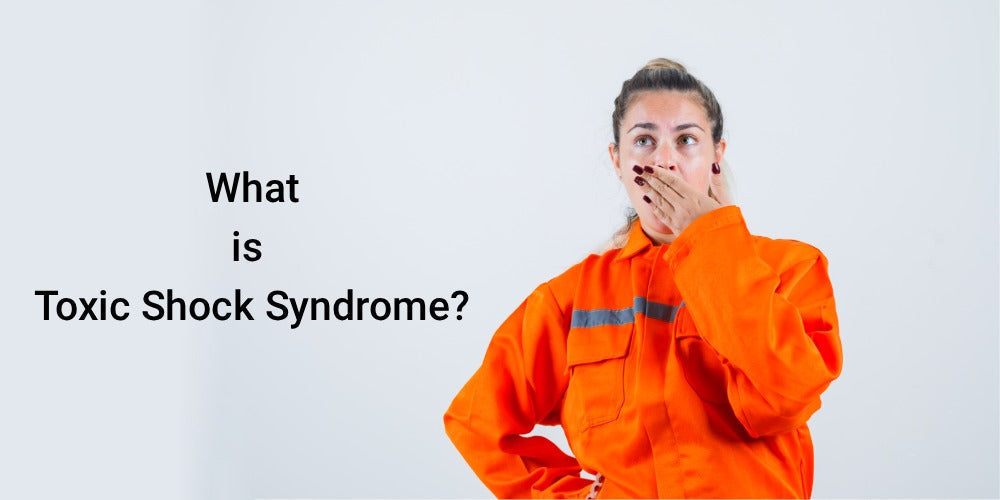
What is Toxic Shock Syndrome its Symptoms and Prevention
Share
Toxic Shock Syndrome is an illness caused by certain types of bacteria (Staphylococcus aureus or Streptococcus pyogenes). It is commonly associated with women using tampons, mainly those who use high absorbent varieties for long periods without changing it. It can also occur with the use of contraceptive sponges and diaphragms. Importantly, tampons themselves don’t cause TSS, they create conditions conducive for bacteria to multiply.
Signs and Symptoms of TSS
Often TSS starts suddenly and often with headache, high fever, diarrhea, vomiting, rapid blood pressure drop, and rashes (resembling sunburn). Other symptoms may be weakness, mild incontinence, and confusion
How do Tampons contribute to TSS?
Fertile environment for bacteria: The vagina contains a mix of bacteria, mostly Lactobacillus and small amounts of Staphylococcus aureus (Staph). When tampons are left inside for long (especially high absorbent ones), it continue to absorb menstrual blood (rich in nutrients) for longer durations; this with residual body heat creates an ideal environment for bacterial growth
Abrasions: Repeated insertions/removals of the tampon cause micro tears in the vaginal wall, allowing toxins and bacteria to penetrate into the bloodstream
Increased level of oxygen: Vaginas are normally low-oxygen environments due to its structure. When tampons are inserted, they naturally increase the level of oxygen inside, allowing the residual bacteria to multiply faster
Why are teens at a higher risk?
Lack of awareness: Teens generally prefer highly absorbent tampons for convenience and efficacy of the product, leading them to leave it in for longer hours.
Lack of immunity: Immunity to staph toxins develops with age and repeated exposure, but most teens have not yet developed the necessary antibodies
Ways to prevent TSS
Change regularly: Tampons / any other period care product needs to be changed every 4-7 hours. Never sleep with tampons inside.
Consult a physician while selecting tampons: Each anatomy is different, consulting your gynecologist for guidance on tampon absorption before use, or prefer going for the lowest absorbency required
Alternate products: Alternating between period care products is a smart way to change/reset the vaginal environment
Maintain hygiene: Always ensure hands and private parts are washed and kept clean
Increase awareness: Open and transparent communication between teens, parents, and healthcare providers is a must
TSS is a rare but often deadly illness. If there’s any sign of symptoms, seek urgent medical care immediately - early treatment saves lives.
If you have had TSS in the past, move to alternative period products such as Period Underwear, Disposable pads, and reusable pads.
